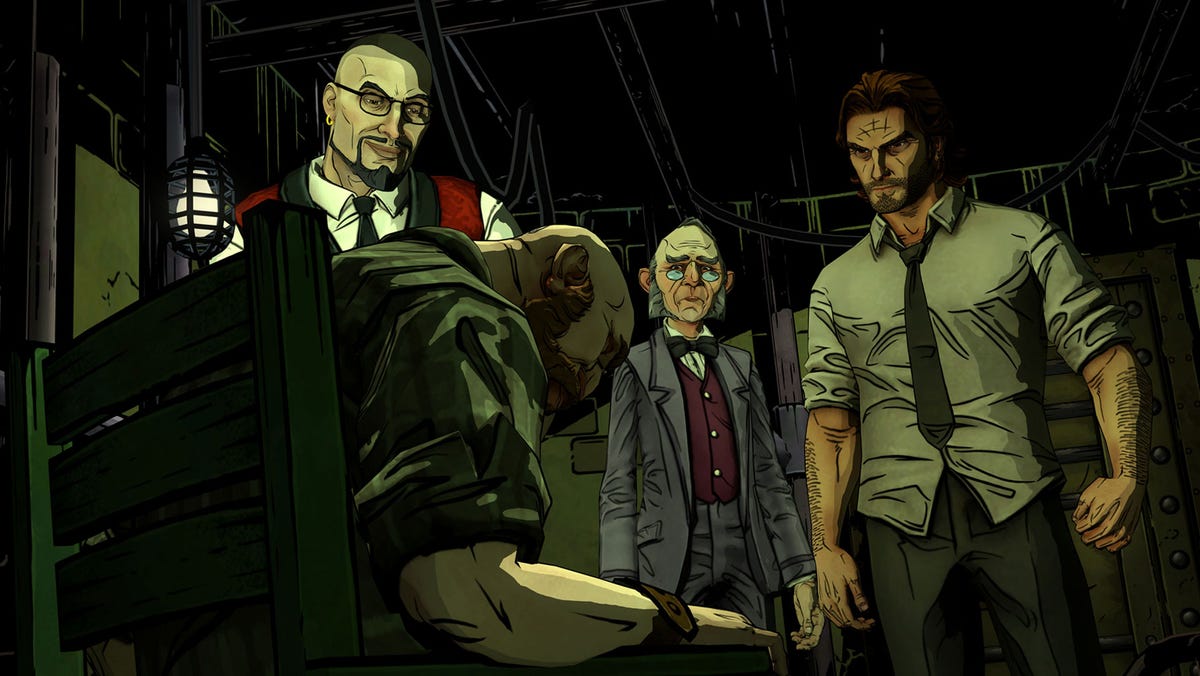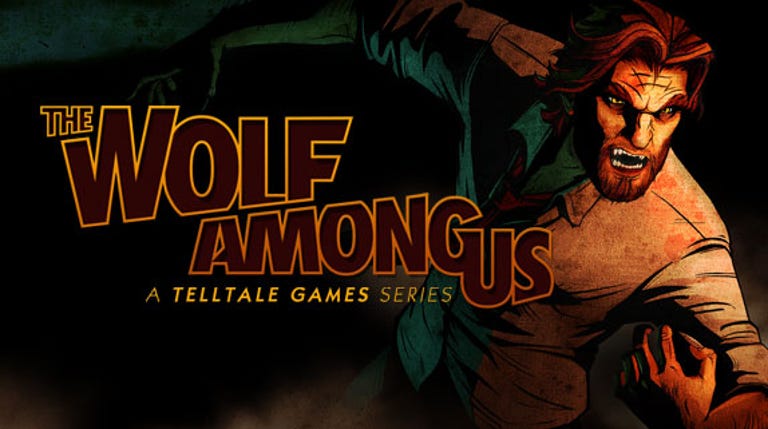 Why You Can Trust CNET
Why You Can Trust CNET The Wolf Among Us (PC) review: Forget it Jake, it's Fabletown
The Wolf Among Us is a stylish noir game with the Big Bad Wolf doing his best Philip Marlowe impression. And if that doesn't sell you on the game, not much else will.
The fifth and final episode of The Wolf Among Us Season One is out, and it really seems like developer Telltale Games is hitting its stride. And as with The Walking Dead, Telltale's previous hit, it's gone to a long-running comic book for inspiration.
The Good
The Bad
The Bottom Line
The Wolf Among Us is based on Fables, the kind of fractured fairytale that would make Tim Burton blush. The series uproots classic fairytale characters from their old storybook lives, and drops them in Fabletown -- their secret community in present day New York. And it's most definitely for grownups.
Telltale Games is no stranger to tackling big franchises, with all save one of its games based on licensed characters. "Licensed video game" is the kind of phrase that usually turns gamers right off. Luckily, Telltale does things a little differently. The Wolf Among Us is more like an interactive movie (or TV miniseries, given the release structure), a natural evolution of classic text-based adventure games.
The game is divided into five roughly bi-monthly episodes to make up a "season". Each episode plays out like a continuous cinematic, with the player given timed options to pick dialogue choices or react in fight scenes.

You'd be forgiven for thinking the games were leisurely affairs. But with only a brief window to choose what to say in conversations, and a shorter time still to react in fights, there isn't much time to catch your breath. What really gives the Telltale model the edge is that your choices will actually change the events of the story, making The Wolf Among Us immersive in a way very few games are.
More importantly, it's obvious that Telltale went in with a lot of respect for the source material. The developer could have easily adapted any one of the plotlines from the comic's critically acclaimed twelve-year run, or created original characters, as it did with The Walking Dead games.
Instead, drawing on the film noir elements of the comic, the Wolf Among Us sends us back to 1986, before the start of the comic, and keeps a core cast of series regulars. The player is handed control of one of the comic's central characters -- Bigby Wolf, the Sheriff of Fabletown. Bigby (as in Big Bad, in case you missed that) is the man with a dark past trying to make good, and for those familiar with the character, the role fits him to a tee.
In fact, it's the unabashed neo-noir style that helps The Wolf Among Us stand up so well -- both as a part of Fables continuity (Telltale has been quick to stress that Wolf Among Us is part of Fables canon), and as a standalone story.
The game oozes style. Telltale's trademark cel-shaded style looks heavy on the shading this time around. While the title sequence isn't usually the kind of thing worth mentioning in a game review, Bigby walking through shifting silhouettes of the city while the pulsing theme music plays sets the tone perfectly. From forcing you to consider those split-second, morally grey choices, to collapsing after a rough night in Bigby's disaster zone of an apartment, Telltale doesn't let up.
Action beats take the form of either fights or chase scenes, and be warned, they're exclusively in the form of quick-time events. While QTEs might not be everyone's cup of tea, they work remarkably well in The Wolf Among Us. The action stays brilliantly cinematic, and QTEs aren't the much maligned pass/fail version most gamers are used to. The fight scenes are brutal, selling the feel of scrambling around in desperate brawls. And they do it better than waiting to mash your counterattack button would.
As much as the feel of the game was close to note-perfect, the running time was a big shortfall. In addition to The Wolf Among Us and The Walking Dead Season Two, Telltale is set to launch two more series in 2014, based on Borderlands and Game of Thrones. The developer has a lot on its plate, and it showed. Compared to the two-hours-plus episodes in The Walking Dead Season One, all five episodes of The Wolf Among Us can be knocked over in a leisurely play-through of just under eight hours.
While the main story doesn't suffer too much for the brevity, wending through well-plotted twists and cliffhangers, it does mean that the supporting cast doesn't really get a chance to shine. Even with a sterling script and voice cast, The Wolf Among Us never stops being Bigby's story, and there's little sense of anything happening in the city that doesn't have to do with his case. It's the kind of thing that will rankle long-time fans of the comic, as the series regulars who do appear are often short-changed when it comes to screen time.
Sadly, the same complaints about linearity Telltale faced with The Walking Dead are just as applicable here. On a larger scale, it doesn't matter so much that you march towards one ending, since the choices you make as Bigby along the way are really what the game is about. The problem with the linearity is that for playing a detective, you never really do much actual detective work.
Aside from an excellent scene early on, Bigby doesn't really need to make any leaps in deduction or collect any evidence. It's a missed opportunity, as even the addition of a few dialogue options for players who picked up on hints or found scraps of evidence would have made progress on the case feel much more player-driven.
Telltale hasn't quite nailed the final episode formula, but the developer has learned a few lessons from the season finale of The Walking Dead Season One. The third act of the final episode of Wolf Among Us has the choices you make along the way come back to bite you, and it's much less contrived than it was in The Walking Dead.
For all those shortcomings, the good parts of the game are not easy to forget. Cutting loose (or restraining yourself) in fights becomes a point of pride. Small character moments give the game surprising emotional punch. And, in classic noir style, the case is closed, but it's not exactly solved.
With a long-running comic series taking place down the track, the game couldn't do much to change the status quo, but there are some fantastic original characters thrown into the mix as antagonists (as well as a twist or two) that will keep even seasoned Fables readers guessing.
Telltale Games excels at crafting stories, and for all its imperfections, The Wolf Among Us hits more than it misses. It's always a danger, especially with episodic stories, that people will hone in on an ending that can't live up to their expectations. But no matter how you play the game, you'll wind up in the same place as everyone else -- on the street, with one choice left to make. It's worth remembering that how you got there is the kind of experience you won't find in many other games.


